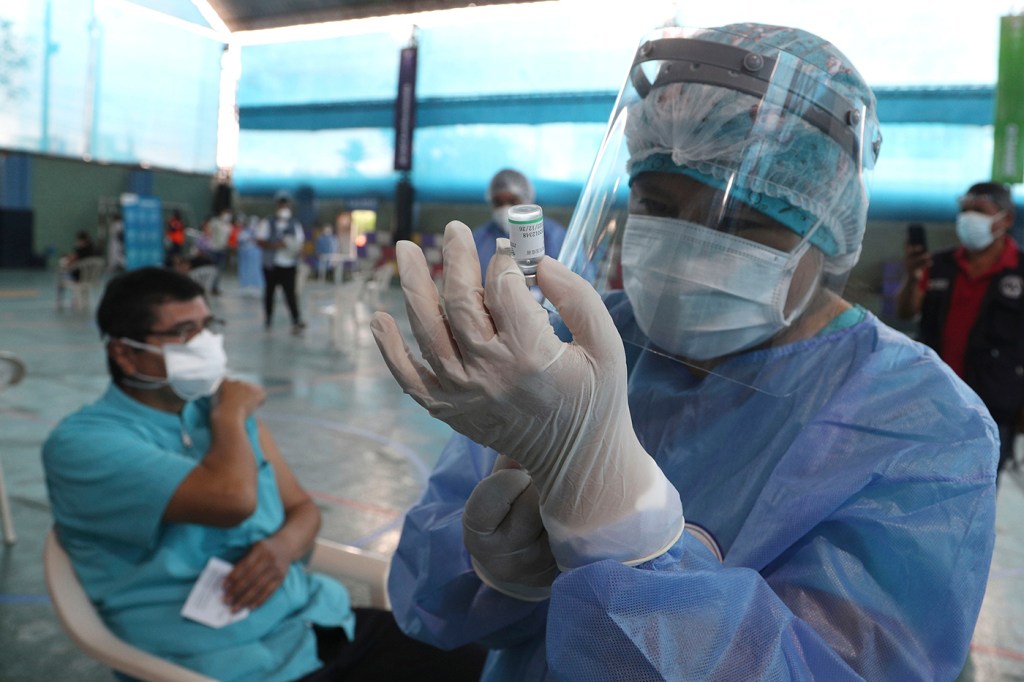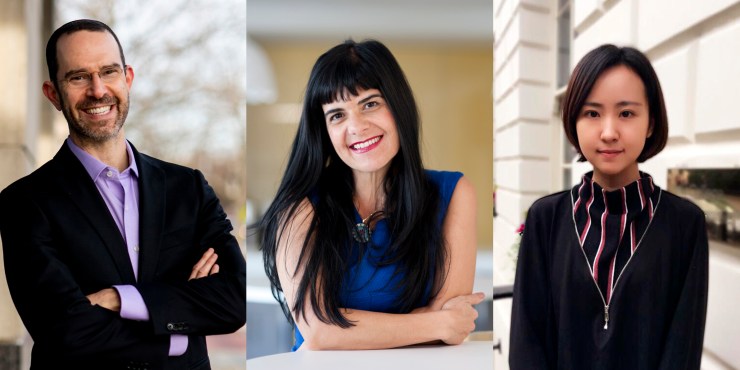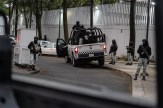Will China’s global investment in ‘vaccine diplomacy’ pay off?

For decades, the United States was a global leader in providing relief when disaster struck around the globe. But American use of soft power has receded in recent years, opening a door for China and other countries to offer COVID-19 vaccines around the world in hope of strengthening their alliances during the pandemic.
China, India, and other proponents of vaccine diplomacy believe they will earn support and goodwill internationally at a time when the U.S. is focused on curbing the coronavirus at home.
China, which approved its COVID-19 vaccine in December amid questions about its clinical trial data, moved quickly to sell or donate doses to 30 countries. China has committed an additional 10 million doses to Covax, an international organization that is distributing vaccines to developing nations.

Left, Daniel P. Aldrich, director of the security and resilience studies program. Photo by Ruby Wallau/Northeastern University. Center, Denise Garcia, an associate professor in the Department of Political Science and the International Affairs Program. Northeastern file photo. Right, lecturer in politics and international relations at New College of the Humanities in London. Courtesy photo.
“We are seeing China aggressively move to find ways to access populations that the U.S. in the past would have been a major donor to,” says Daniel Aldrich, director of the security and resilience studies program at Northeastern. “China very much would like to be the next power. The only question is, at what time will China emerge as the next major contestant with the U.S. for power diplomacy?”
A vaccines competition has emerged between India and China, who engaged in a military confrontation over their shared border in June. Both countries have donated vaccines to Sri Lanka in pursuit of its allegiance. Additionally, India has sent vaccines to Nepal in hope of strengthening that relationship at China’s expense.
“All disaster aid is inherently political,” says Aldrich, a professor of political science, public policy, and urban affairs. “It’s definitely not the case that the people who are most needy get the most aid.”
The U.S. made its most influential investment in disaster relief in 1948, when it committed $15 billion to the Marshall Plan to help rebuild Western Europe following World War II. Its soft-power approach changed abruptly under the “America First” plan of President Donald Trump, who attempted to sever U.S. support for the World Health Organization during the pandemic.
“The US has damaged itself diplomatically by declining to offer vaccines globally,” says Xuechen Chen, a lecturer in politics and international relations at New College of the Humanities in London, part of Northeastern’s global network. “But this is not only about the vaccine; it is also associated with the U.S. failure to effectively handle the COVID-19 crisis internally.”
The U.S. has suffered more than 500,000 COVID-19 deaths, twice as many as any other country. Trump’s successor, Joe Biden, has committed $4 billion in U.S. aid to Covax, but he hasn’t donated any of the 1.2 billion doses that his government has purchased. Biden cannot be seen trying to help people in other countries until he begins to resolve the COVID-19 crisis at home, says Aldrich—who notes that a similar dilemma exists for China and other countries that are actively engaging in vaccine diplomacy.
“The risk is that someone domestically will say: Why is China, which still has ongoing cases, or India, which has a massive COVID-19 problem right now, sending this vaccine abroad—as opposed to using it to help the people at home?” Aldrich says.
That risk may have influenced the recent announcement by the Serum Institute of India that international deliveries may be delayed in order to focus on meeting demand in India.
The leveraging of much-needed vaccines is necessary in a world of haves and have-nots, says Denise Garcia, an associate professor in the Department of Political Science and the International Affairs Program at Northeastern.
“Vaccine diplomacy to forge cooperation and ties are essential to assist the most vulnerable,” says Garcia. “Polio was eradicated due to the scientific breakthrough born out of fruitful cooperation between the Soviet Union and the United States during the height of the Cold War.
“The central question is: Will vaccine diplomacy enhance equitable solutions to end the pandemic?”
The goodwill created by vaccine donations can be undone by competing world events and changes in diplomatic policy, notes Chen.
“Empirical research seems to suggest that the overall effectiveness of disaster diplomacy remains limited,” Chen says. “Disaster-relief diplomacy may have some positive impact on improving cooperation, but such impact can only be observed in the short term.”
China’s aggressive use of vaccine diplomacy comes as no surprise to Chen.
“China has long pursued various economic and development aid policies to elevate China’s popularity in the international community as well as to improve China’s global image,” says Chen, referring to its emergency disaster-relief initiatives in Algeria, Iran, Pakistan, Indonesia, Nepal, and Japan in the early 2000s.
China claimed in December to have sent 36 COVID-19 medical teams to 34 countries while providing assistance—including 200 billion masks, two billion protective suits, and 800 million testing kits—to more than 150 countries overall.
“I’m personally skeptical about China’s capacity to consolidate international alliances by using vaccine diplomacy,” says Chen, referring to China’s tendency to congratulate itself while downplaying or criticizing the efforts of other countries.
Though the Biden administration has not been engaged in vaccine diplomacy, a recent survey of residents of Southeast Asia nonetheless found that more than 60 percent of respondents would prefer to align with the U.S. than with China.
The high-stakes importance of stopping the pandemic is unlikely to contribute to trust among nations, notes Garcia, especially when some treatments—such as Russia’s Sputnik V, which was approved in advance of late-stage trials—have faced issues of credibility.
“Vaccine assistance may not be as useful as a form of diplomacy as some countries may wish,” Garcia says. “More concerted cooperation, like the one led by Covax, is the sort of long-term diplomatic tool that the world needs now to meet this current crisis, and meet reliable partnerships.”
For media inquiries, please contact media@northeastern.edu.






